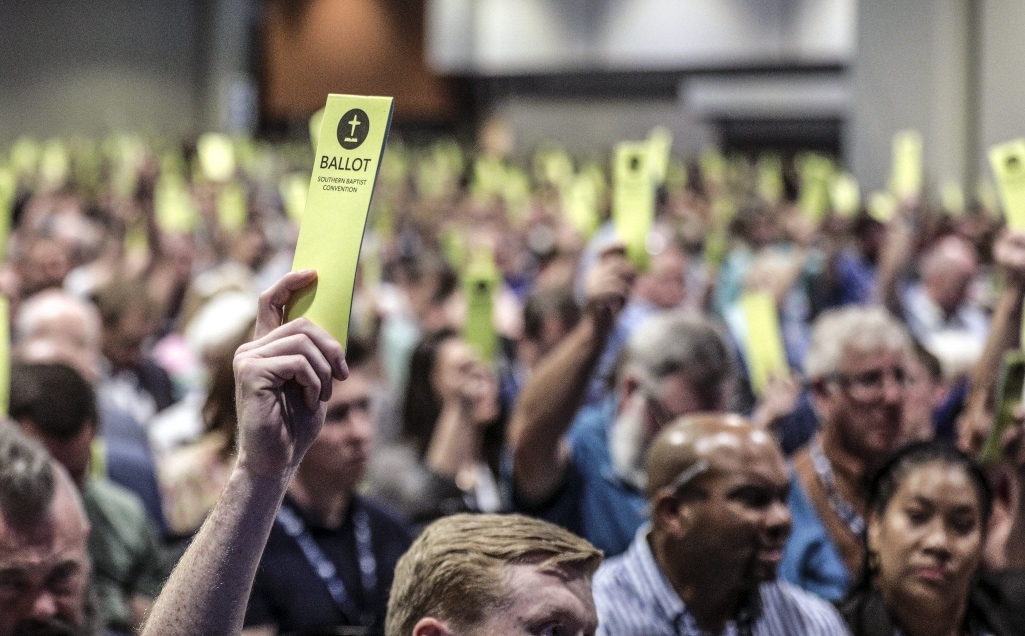In the 1960s and ’70s churches seemed to be thriving with members and money, especially among Southern Baptists. The Foreign Mission Board (FMB) of the Southern Baptist Convention (now the International Mission Board) began setting goals to appoint several thousand missionaries. The promotion of the Lottie Moon Christmas Offering for International Missions produced tens of millions of dollars.
As I reflect on 50 years of serving as a pastor, an international missionary and a seminary/divinity school professor, several observations stand out in my experience with Muslims.
I have often wondered, what if we had responded to Muslims differently?
Today, Islam is the fastest-growing world religion with an estimated 1.7 billion Muslims worldwide. In 1980 there were 800,000 Muslims in Europe. Presently there are tens of millions of Muslims across the European continent.
My wife, Joan, and I were in the FMB’s first extended missionary orientation at Ridgecrest, N.C,. in the fall of 1967. In previous years, missionaries had a one-week orientation in Richmond before leaving for their overseas assignments.
At Ridgecrest, there were about 100 missionaries with several hundred children living in close quarters, eating meals together and attending classes from early morning into the evenings for 16 weeks. It was a boot camp. Of the 100 missionaries going to all continents, only two couples went to Europe (Italy and Switzerland) and one couple – my wife and I – went to the Middle East (Iran).
Some couples were assigned to Muslim people groups in Asian and African countries, but very few went to the historical heartland of Islam in North Africa, Egypt, Lebanon, Jordan, Turkey, Syria, Iran, Afghanistan and Pakistan. There were openings for missionaries, but very few responded.
Joan and I were appointed as the first Southern Baptist missionaries to the country of Iran in 1967. With our three children, we arrived in Tehran and were befriended by Presbyterian missionaries who assisted us in obtaining legal work permits.
I taught world religions as the only non-Iranian on the faculty of Islamic theology at the University of Tehran. I taught Muslim clergy that would be preachers in mosques, teachers in universities and chaplains in the military. I also served as associate director of Armaghan Institute, operated by the Presbyterian mission. The institute offered English classes to more than 600 Iranian high school and university students using the Bible as a study source. It was located strategically across the street from the main gates of the University of Tehran with an enrollment of 25,000 students.
From 1968-70 I communicated with FMB officials through letters and telephone calls, asking them to send young college graduates in the newly formed missionary Journeyman program to Tehran as English teachers. Iranian students were eager to learn English at Armaghan Institute.
We believed it would be easy to get work permits from the government of Iran for a dozen Journeyman each year to teach English, using the Bible as the textbook. Also, I asked FMB to send professors to teach in several Iranian universities in Tehran and Shiraz.
No Journeymen or professors were sent to the Iranian people.
What if dozens of missionaries would have been called and sent to Iran?
I persuaded FMB to sponsor a conference on “Witnessing to Muslims” in Tehran in 1969. It was the board’s first conference on that theme. Two missionaries from each of 14 countries gathered to present papers. Bishop Hassan Deqhani, the first native Iranian Bishop of the Anglican Church in Iran and a Muslim convert, addressed the missionaries.
The conference inspired missionaries to call for expanded efforts to reach Muslims.
The bishop and his wife were later attacked in their home and forced to flee Iran at the beginning of the Iranian Revolution. Arriving in England, they learned their son, who had been my colleague at Damavand College, was murdered in the streets of Tehran. Thus, another clarion call was sent out by field missionaries to send others to the Muslim peoples.
During my first sabbatical at Southeastern Baptist Theological Seminary in 1980-’81, FMB asked me to travel to Europe to meet with Baptist church leaders and missionaries to ascertain the conditions of the new immigration advance into the Netherlands, France and Germany.
Thousands of Muslim immigrants were entering these countries from South Asia, the Middle East and North Africa. They were gathering in religious ethnic ghettos, forming Islamic associations and building mosques.
It seemed obvious they planned to stay in those countries and maintain their own nationalistic, ethnic and religious heritage.
The limited number of national Baptist pastors and FMB-sent missionaries began to show concern about relations with the Muslims in their new cities. They voiced their concerns and asked for help in reaching Muslims.
Upon my return to the states, I sent a report of my research and findings. I sounded the alarm voiced by the pastors and missionaries of the region, asking for immediate assistance with personnel that are equipped with the language of the various immigrant groups and that have an understanding of Islamic beliefs and cultures. We reasoned that if Muslims could be reached in the early days of entry into Europe, before they settled into the emerging Islamic communities, they would be more open to the gospel.
There was little measured response by FMB to the Islamic advance into Europe by Muslim immigrants from Turkey, Pakistan, Bangladesh, the Arab Middle East, Iran, Tunisia, Algeria, Libya and Morocco.
What if personnel from stateside churches had responded to the presence of Muslims in Europe?
What if the vision had been caught and missionaries had been called and sent to the heartland of Islam when nations were more open to receive them?
I am most thankful to all who have responded to the call to take the gospel of Jesus Christ to Muslim peoples through the years. I am thankful to have had the strength in these latter years at Southeastern and at Campbell Divinity to take several thousand students and others into mosques so they could learn, as well as share our witness.
Ringing in my ears and pressing on my heart are two hymns of my earlier years that influenced many in the call to missions to Muslims: “All to Jesus I Surrender” and “Wherever He Leads I’ll Go.”
“Surrender,” “wherever” and “He leads” are the foundational and operative words in all mission journeys and opportunities. God loves Muslim peoples.
What if more Baptists had responded to a call to take the gospel to Muslims? With IMB’s recent strategies and an increased burden for missions within our churches, more Baptists are willing to go to the Muslim populations of the world today. God willing, more will respond in the future. “Go into all the world and preach the gospel …” Matthew 28:19-20.
(EDITOR’S NOTE: George Braswell is the author of nine books, the Distinguished Professor Emeritus of Missions and World Religions of Southeastern Baptist Theological Seminary and recently retired as senior professor of world religions at Campbell University Divinity School. He is the founding director of the George W. and Joan O. Braswell World Religions and Global Cultures Center at Campbell.)


